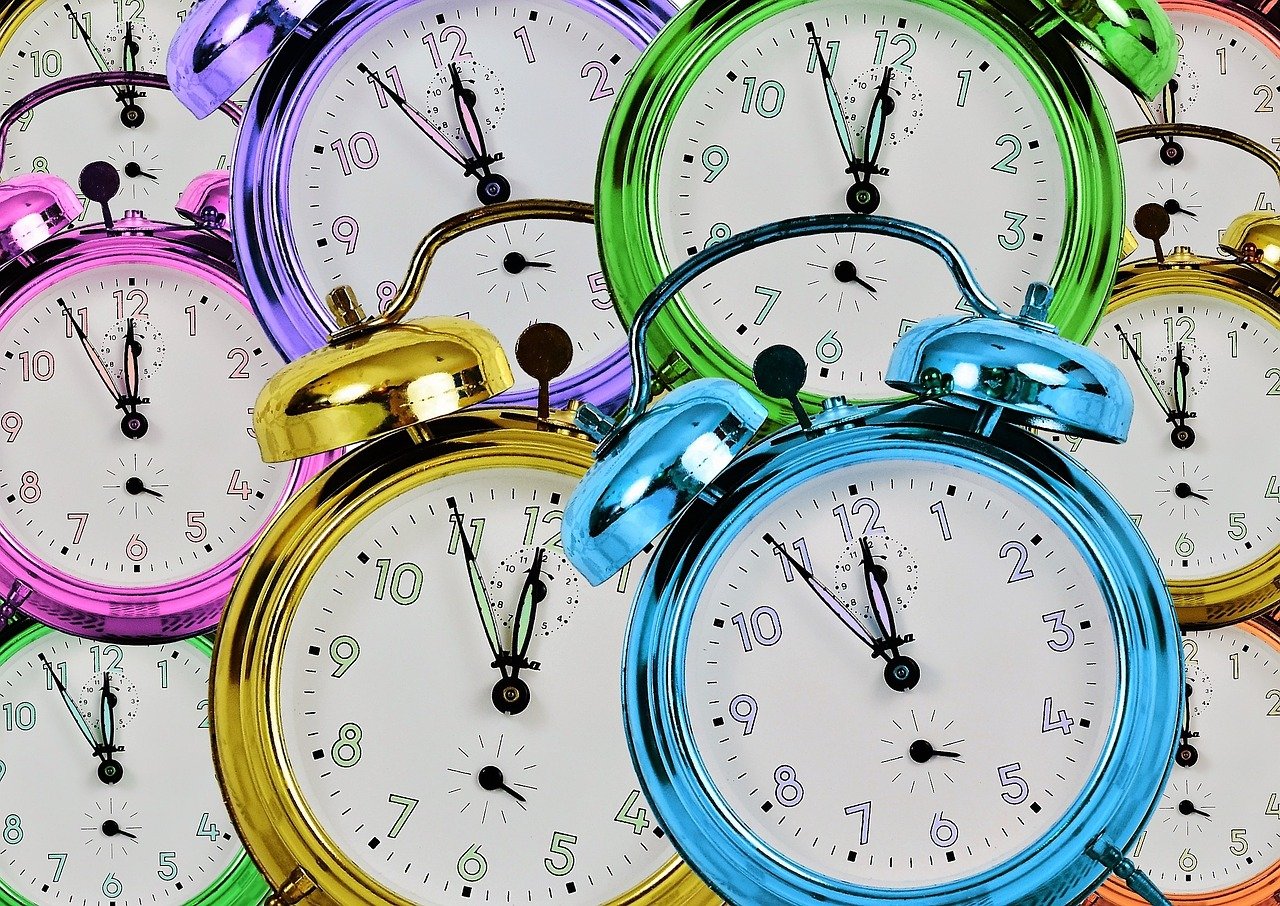

It might be hard to believe, but there are people who seem to be unable to go to socials gathering and arriving on time, despite having planned schedules and having their eyes constantly fixed on the clock. It is problematic, especially when this delay, which is based on the time at which the trip to the meeting place should start, is worsened by unexpected incidents, or when there is not much trust with the people who are waiting.

Being late insults others, but it also undermines the person who is late, because it may betray a lack of intelligence, self-knowledge, will power, or empathy. For instance, it may be that the person who is late has set unrealistic goals and overscheduled his day, or underestimated the time that it takes to travel from one place to another. | Source
Arriving late tends to be very annoying for both the person waiting and the person who is late, and yet it is very common to leave with just the right time (or even at the time the person is supposed to be at the correspondent place). How can it be explained that it costs us so much to learn from our mistakes and leave in advance so we don’t arrive late? There are diverse reasons that can clarify the existence of this "chronic lateness" some people suffer a lot.

What could be the reason for this tendency to be always late?
There have to be a reason that explains why some individuals are almost never on time, while others have an almost perfect punctuality. Can this difference have something to do with some psychological aspect?
People with a narcissistic personality are prone to have problems when it comes to understanding and respect the time and well being of others. This means, among other things, that they will not realize the fact that each time they arrive late, it will cause discomfort to the people waiting and, in fact, they may find some enjoyment in making people wait for them.
Ms. DeLonzor reveals that chronically late individuals often share certain personality characteristics, and may even perceive time differently. | Source

In the end, making themselves to be late to any meeting on purpose can be a sort of strategy for them to create the fantasy that they are important enough so that everyone has to wait to enjoy their company.
Another reason could be the need to find shortcuts or methods to move forward quickly and the release of adrenaline that is associated with being late can be considered some type of sport, in which case they arrive late for a kind of strange pleasure.
Because of this, it is possible that it can end up with an addiction. So, the fact that some people, unconsciously take advantage of every social gathering or meetings to use those as an excuse to have a little adventure against the clock, could be understandable.
There are many more explanations about why a certain individual may not want to arrive a second before the agreed time, but its important to notice that these people don’t necessarily want to cause harm to the person waiting.
The main culprit in people being too early or too late was their time estimation bias. To get yourself where you need to be at the right time, you need to keep your internal clock in tip-top shape. It helps to use environmental cues, especially if you think you’re not very good at estimating time. | Source

Arriving early can be seen as a complete waste of time. It does not give the feeling of serving a clear purpose. Faced with the prospect of arriving too early and not doing anything for a while, it is certainly possible that many people prefer to consume a little bit of time by doing things that are apparently productive, such as cleaning the house, reading a book or even taking time to rest. Of course, this preference towards productivity that leads to their chronic lateness would probably not be present if they didn’t have the perception of having to choose between that or spend an unproductive time in the place agreed for the meeting.
Arriving early can also means spending some moments of monotony and discomfort. Waiting for someone requires being in the place without moving for a few minutes, with nothing to do and without being able to go anywhere else. Just as it is known that the other person may be upset if he or she has to wait a long time, the people who tend to be late is aware that they can also be the one disturbed if they were the one waiting.
On the other hand, for some people waiting is a small challenge in which they must look interesting and offer a positive image of themselves while remaining alone because others have decided so. People can smoke, check the phone or put well thought poses. A situation similar to that which occurs when we go in an elevator with unknown people, except the elevator only lasts for a few seconds.
When it comes to your personality type, unfortunately, there's not too much you can do to change that. But accepting that you need to overcompensate for it may just help. | Source

Conclusion

It is fair to say that for these people to arrive early is something negative, and a possibility that must be avoided. Therefore, they discard the chance of leaving with enough time left (either due to a conscious or unconscious decision), they only have the option of arriving just at the agreed time or later. And, as the alternative to arrive late is obviously much more common than the first option, it is therefore, the most recurrent of the two possibilities. Result: late arrivals, every time.
So now, if we think that one of the reasons shared in this article can explain some of the occasions in which people are late, the main thing is to recognize it and fight for this to stop happening, perhaps by speaking with the person about this annoying tendency.
Have you ever been late on purpose to a social gathering or a personal meeting?
If so, can you share with the community why do you think you did that?
References
mayoclinic – narcissistic personality
psychologytoday – the psychology of lateness
psychologytoday – why are people late
sciencealert – chronically late
Images sources
All images are from pixabay

If these titles sound interesting to you, I assure you the articles will be even better!

Beware of the Burnout syndrome
Understanding our brain, how our thoughts work
Procrastination and psychology
Why are some people hypocrites?
